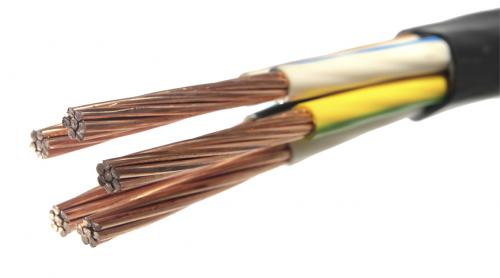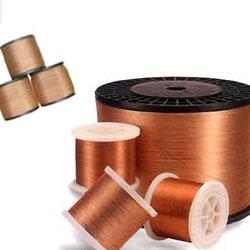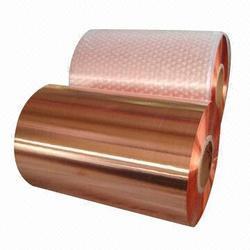8 Ways Copper Wire Cables Have An Edge Over Aluminum Cables
 Copper and its alloys are the favorites in electrical application thanks to their chemical, physical, and mechanical properties. Copper (its symbol is Cu) shows the highest electrical conductivity among all metals, except silver.
Copper and its alloys are the favorites in electrical application thanks to their chemical, physical, and mechanical properties. Copper (its symbol is Cu) shows the highest electrical conductivity among all metals, except silver. This means that you need just a small size conductor to transmit power for a particular service. This is a crucial thing to note. Reduction in size of conductor means reduction in expense incurred in insulating, armoring and shielding cables. Small size also makes it easier to install and transport cables and it increases cable flexibility. That’s why copper wire cables are more preferred.
More features of Cu cables
A noteworthy quality of copper is that it does not produce a sturdy non-conducting oxide at its surface. So, it is easier to join Cu cables. Oxide film that is created on Cu surface is thinner and conducts electricity. That is the reason engineers use cables and wire of Cu with single-conductor connections in buildings.
Another thing to take care of during electrical installations is rise in temperature. Metal’s electrical conductivity may fluctuate with fluctuation in temperature. During times of power overload, a metal may get over heated and show reduced conductivity. This may create problems and decrease energy efficiency. Copper shows excellent performance in such over-loading cases, as it has high temperature tolerance.
Copper is unique in its own way
Copper has a set of unique properties that make it the most preferred metal for electrical applications. Its properties enable manufacturers to produce a variety of copper wire cables. This widens scope of applications too.
Three hard-to-miss qualities of copper installations are: high reliability, high performance, and low maintenance.
8 Proven advantages of copper cables
Copper and aluminum compete with each other in the electrical world. Both are preferred elements. However, it is found that Cu cables have an edge over aluminum ones in many ways:
• They show low resistivity. This, in turn, reduces the loss of energy. It is seen that aluminum cables show almost 1.68 times more resistivity than Cu cables.
• It is possible to elongate copper cable alloys by a whopping 20-40 per cent, with an average of 30 per cent. This is due to Cu’s ductile nature. Aluminum shows just 18 per cent elongation ability.
• Cu cables are found to endure higher stress than aluminum ones.
• Cu conductors are found to have better resistance to corrosion than aluminum ones.
• Copper conductor-based wires, with the same cross-section, are found to exhibit about 30 times more load capacity than those made from aluminum.
• Cu is more elastic than aluminum, about 1.5 times more. This gives Cu wires higher anti-fatigue property than aluminum wires.
• Due to small permissible bending radius of Cu wires, they are easier to handle during installation of wirings.
• It is found that copper gets heated lesser than aluminum when same voltage of current is passed through same models of conductors of copper and aluminum. This makes copper safer in electrical applications.
Manufacturers of high repute like Rajasthan Electric are dedicated to providing high quality copper wire cables and other electrical products. They are a name to reckon when seeking electrical essentials for domestic and industrial purpose.







Comments